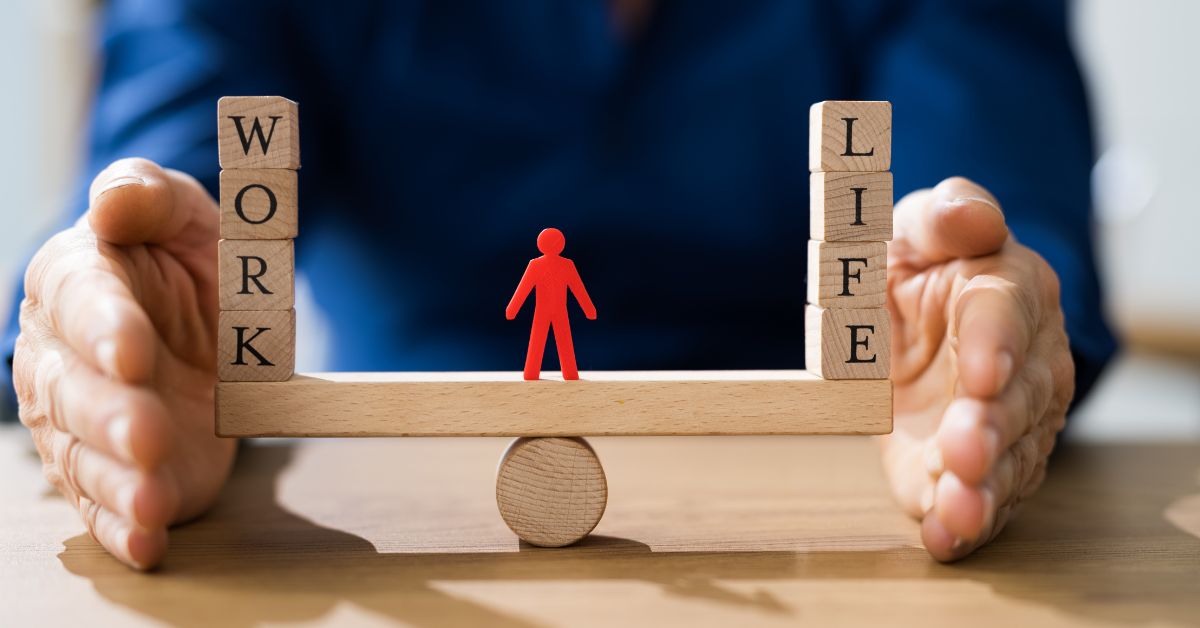Let’s talk about burnout.
Burnout is a hallmark of achievers and it's become more and more common, costing companies big money and for the people, their health and well-being. Yet, despite the increased awareness and attention on stress management in the workplace, the problem persists. It's a mental health crisis.
If this speaks to you, you know the signs.
You're always on the go, pushing yourself to the limit, and fighting the clock most days. Maybe you're starting to feel a bit worn down, trying to keep up with constant changes in the environment, perhaps teetering on the edge of burnout. Or worst case scenario is you accept it as a badge of honor, a hard earned price to pay for the ultimate outcome – Achievement!
Whatever dance you’re doing with burnout, the end result will be downright ugly if you don't take charge of it now.
So, if you ‘re like I once was, always busy-busy accomplishing things, checking off the to-do list like there’s no tomorrow, constantly pressured to accomplish all the things, dancing with stress and burnout and know you need to get hold of it before it’s too late…
You’re in the right place!
Today's blog post is all about finding that sweet spot between burning out and living a life that's both fulfilling and balanced. We'll cover:
- Recognizing the Signs of Burnout
- The Psychology of the Achiever's Burnout
- The Power of Embracing Imperfection
- 10 Strategies for Balance Tailored to Achievers
Let's jump in!

The Signs of Burnout
First things first, let's figure out if you're actually on the brink of burnout:
- Chronic Fatigue: You feel mentally and physically exhausted most of the time.
- Lack of Joy: Even your favorite hobbies and activities no longer bring joy.
- Decreased Performance: Tasks that used to be a breeze now feel overwhelming.
- Inability to Focus: You stare at the computer screen and draw a blank most days, or experience chronic forgetfulness.
- Health Issues: You're facing health problems related to stress, such as headaches or digestive issues.
- Overwhelming Pressure: You feel the responsibility of the world on your shoulders.
Yikes, sound familiar? If you see yourself here, stuck in the zone of burnout but don't know how to get out, get serious about addressing the root cause. There are some unique features of achiever mentality that may be flying under the radar.
How You Got Here
Burnout doesn't happen overnight. It's not a sudden failure or collapse but rather a slow and insidious process that builds up over time. Imagine a pot simmering on the stove; the heat gradually increases until it rea aches a boiling point.
Similarly, burnout starts with small, often unnoticed stressors that accumulate:
- a few extra hours of work each week
- a little less sleep
- a few more missed daily meals
- constant pressure to meet ever-increasing expectations
- tightening in the chest, neck, shoulders or jaws
Slowly but surely, these stresses add up, eroding your energy, motivation, and even your health. The joy and satisfaction you once felt in your work and life may start to wane. You might find yourself feeling more cynical, detached, or overwhelmed. Before you know it, you're facing full-blown burnout, feeling physically, emotionally, and mentally exhausted.
The tragedy of burnout is that it often goes unrecognized until it has reached a critical stage, making prevention and early intervention vital for maintaining balance and well-being.
The Unique Psychology of the Achiever's Burnout
Unlike typical burnout, which often results from sheer physical exhaustion, the burnout experienced by high achievers is more nuanced and complex. It's rooted in the very psyche of the achiever, intertwined with their identity, aspirations, and the unrelenting drive to reach ever-higher goals.
For high achievers, burnout is not simply a matter of working too many hours or taking on too many tasks. It's a deeply personal and psychological struggle to people who consistently pushing the boundaries of success and personal achievement and manifests in ways that are often misunderstood or overlooked.
- Over-Commitment: The tendency to say "yes" to everything leads to spreading oneself too thin. Achievers may fear missing opportunities, disappointing others, or appearing incapable, leading them to overcommit. The resulting lack of time for oneself creates an environment ripe for burnout.
- Poor Sense of Self: Achievers sometimes rely heavily on external validation of their self-worth. Without constant recognition and praise, they may feel a sense of inadequacy, forgetting that their value extends beyond their accomplishments.
- Lack of Self-Care: The pursuit of success often involves ignoring the body's needs for rest, nutrition, and relaxation. Achievers might view these needs as hindrances to their goals, leading to a neglect that eventually takes a toll on physical and mental health.
- The Perfectionism Trap: Striving for flawlessness leads to unrealistic expectations and endless pressure. Even a minor imperfection can feel like a significant flaw, perpetuating a cycle of stress and dissatisfaction.
- Fear of Failure: Achievers set high standards for themselves, so even small setbacks feel like monumental failures. This fear can lead to anxiety and hesitation, stifling creativity, and hindering progress.
- The Identity Crisis: Tying self-worth to achievements can lead to a loss of personal identity. When accomplishments become the sole definition of success, any failure or setback becomes a personal affront, leading to a fragile sense of self that's dependent on constant achievement.
This complex interplay of factors creates a unique form of burnout that goes beyond mere exhaustion. It's a deep, multifaceted weariness that can eat away at an achiever's joy, creativity, and sense of purpose, requiring a deliberate and mindful approach to healing and prevention.
The Power of Embracing Imperfection
Perfectionism can be the common hidden culprit behind burnout, especially among high achievers. Striving for that elusive "perfect" outcome can lead to endless hours of work, anxiety, and dissatisfaction.
But here's the secret: perfection doesn't exist. It’s an illusion.
By embracing imperfection, you allow yourself to accept that "good enough" is often more than enough.
Recognize that mistakes and imperfections are not failures but opportunities for growth and learning. When you free yourself from the shackles of perfectionism, you'll find more joy in your work and life, paving the way for a healthier balance.
Learning to embrace imperfection can be a game-changer.

10 Strategies for Finding Balance for Achievers
The solution to escaping the cycle of burnout is both simple and complex. Some strategies can easily be put into place to protect your well-being, others will take personal development work to explore the root cause of thoughts and beliefs that got you here in the first place. Take a look at the following winning strategies to kickstart your own personalized balanced plan tailored to your life:
- Set Clear Boundaries: Learn to say "no" and prioritize your own wellbeing. Be assertive in communicating these boundaries.
- Practice Mindfulness: Engage in activities that keep you grounded and present.
- Embrace Imperfection: Reframe your views of imperfection to celebrate your progress and courage to put yourself out there “as is.”
- Redefine Success: Embrace a broader definition of success that isn’t tied to just career, but includes areas like well-being and relationships. Make the mindset shift from workaholism to well-being and factor that into your version of success.
- Build a Fail-Safe Environment: Create a space where failure is not only acceptable but celebrated as a learning opportunity.
- Align with Core Values: Ensure that your pursuit of success aligns with your core beliefs and principles.
- Use Habits for Support: Habits are your support system that run on auto-pilot to support your needs. Assess what new habits you need to create more balance.
- Reevaluate Your Self-Worth: If your worth has been tied to your achievements, let it go. Start the inner work of disconnecting your actions from false beliefs about your worth.
- Take Time for Yourself: Schedule regular "me time" to relax and recharge.
- Create a Support System: Surround yourself with positive influences and accountability partners that help keep you in check
SUMMARY
Burnout doesn't have to be your fate, dear friend. By recognizing the signs, understanding the causes, and implementing these strategies, you can transition from burnout to balance.
Remember, it's not about working harder but working smarter. It’s believing that perfection is not the goal. Living a life that's true to yourself is. Take a deep breath and embrace the beautiful imperfection of being human. Your well-being is worth the effort, and you have the power to make the change.
You've got this! 🌟
Want to conquer stress and make room for more harmony in life?
Get the FREE 23-page Ease and Flow Lifestyle Starter Kit, a holistic stress-busting guide especially for ambitious achievers, with 15 proven tips and 50+ linked tools to help driven achievers master work-life harmony, sustain inner balance and take control of your life. Get it here.

